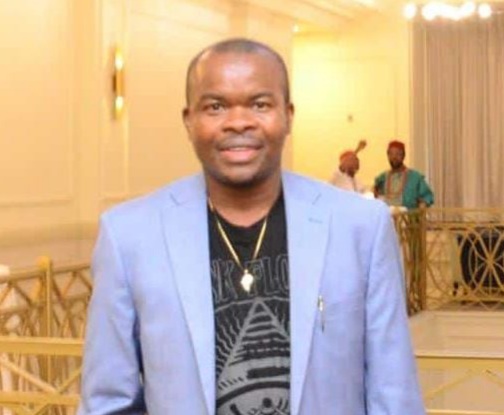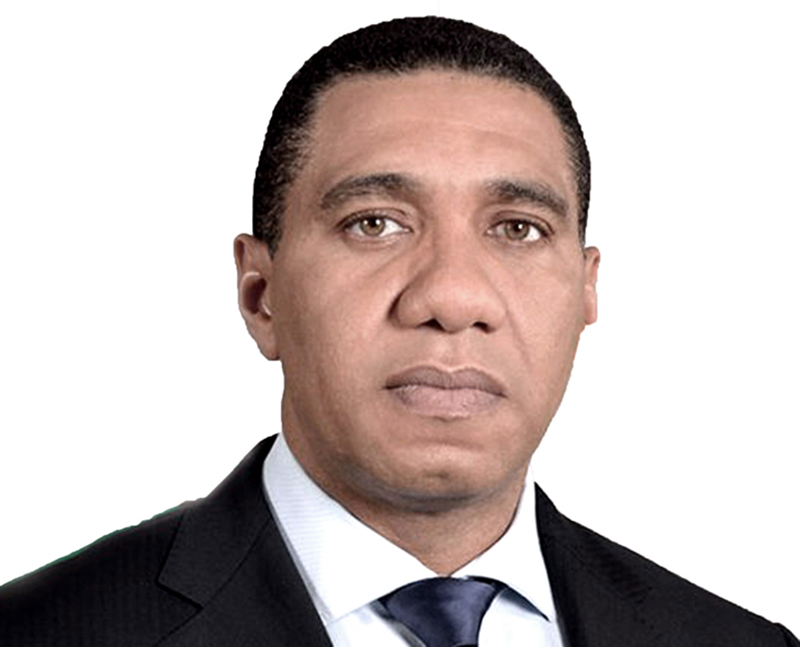News
Kenya In Crisis: Ruto’s Reversal Fails To Quell Protests And Mistrust

In a dramatic turn of events, President William Ruto of Kenya addressed the nation to announce that he will not sign the highly contentious finance bill that had sparked widespread and deadly protests across the country.
This decision comes amidst a backdrop of deep public mistrust and skepticism towards the government, as highlighted by various reports and analyses.
The recent unrest in Kenya has been marked by significant violence and loss of life. According to the Kenya National Commission on Human Rights, at least 22 people were killed during protests on Tuesday, while the Kenya Medical Association reported 13 fatalities. These protests erupted in response to the proposed finance bill, which many Kenyans saw as exacerbating already dire economic conditions.
Despite President Ruto’s decision to withdraw the bill, the public remains deeply skeptical. Independent analysts have noted that many Kenyans view this move as a strategic delay rather than a genuine concession. Willis Okumu, a researcher at the Institute for Security Studies, suggested that Ruto’s decision was influenced by political damage control and potential Western pressure.
On social media platforms, Kenyans expressed their doubts about Ruto’s intentions. A user named Hanifa on X (formerly Twitter) criticized the president’s timing and questioned the sincerity of his withdrawal.
Journalist Amina Wako echoed this sentiment, emphasizing that the withdrawal of the bill is merely a small step and insufficient to address the broader issues of police brutality and governance.
The finance bill itself has been a focal point of contention. President Ruto’s address included a defense of the bill, highlighting its intended goals such as reducing Kenya’s debt burden and funding development projects.
However, many Kenyans remain unconvinced, citing persistent corruption and misuse of funds as significant concerns. The proposed constituency development fund, for instance, has been criticized as a form of patronage with little accountability. The protests have brought to the forefront the frustrations of Kenya’s younger generation. High taxes, unemployment, and deteriorating public services have galvanized the youth to take to the streets. This demographic, previously perceived as politically disengaged, is now at the heart of the protests, challenging traditional modes of political participation. President Ruto’s decision to withdraw the finance bill, while significant, may not be enough to quell the unrest. The move has been seen as a response to the grievances raised by protesters, but the president’s legitimacy remains in question. Political writer Nanjala Nyabola noted that Ruto has lost substantial credibility, making it uncertain whether citizens will trust his future actions.
The situation in Kenya remains fluid and complex. President Ruto’s concession to withdraw the finance bill is a notable development, but it is clear that deeper issues of governance, economic
hardship, and public trust must be addressed to achieve lasting peace and stability
Business
Taxation and the Nigerian Diaspora

Taxation and the Nigerian Diaspora
For Nigerians in the diaspora, taxation has recently taken on a renewed urgency, shaped by Nigeria’s evolving fiscal reforms and global policy shifts that increasingly touch lives beyond the country’s borders. From London to Atlanta, Toronto to Berlin, conversations among Nigerians abroad are no longer just about exchange rates or remittance channels, but about what the newly introduced tax reforms at home truly mean for them.
Nigeria’s latest tax reforms, scheduled to take effect from January 2026, are among the most ambitious fiscal overhauls in decades. Driven by the need to boost non-oil revenue, the Federal Government has made clear its intention to widen the tax base and improve compliance rather than raise blanket tax rates. According to official data, Nigeria’s tax-to-GDP ratio remains below 11 per cent, far lower than the African average of about 16 per cent. This gap has pushed policymakers to rethink how revenue is generated, especially in an economy grappling with subsidy removal, currency reforms and rising public debt.
For Nigerians living abroad, the immediate concern was whether these reforms would extend Nigeria’s tax reach to foreign-earned income or remittances. That fear was amplified by online speculation and misinformation. However, the government has repeatedly clarified that foreign income earned by non-resident Nigerians remains exempt from Nigerian taxation. Residency remains the key determinant. Under the revised framework, an individual becomes tax-resident only if they spend 183 days or more in Nigeria within a 12-month period. For the vast majority of Nigerians in the diaspora, this condition does not apply.
Equally important is the clarification on remittances. Nigeria received approximately 20.5 billion dollars in diaspora remittances in 2023, according to World Bank estimates, making it one of the largest recipients globally. These inflows support millions of households and often serve as informal social security. The government has stated unequivocally that personal remittances sent to families are not subject to taxation. This reassurance, publicly restated by the Presidential Committee on Fiscal Policy and Tax Reforms, was crucial in calming fears of an erosion of diaspora support for families and communities back home.
That said, the reforms do affect Nigerians abroad who maintain economic ties with Nigeria. Rental income from properties, dividends from Nigerian companies, business profits and capital gains derived within Nigeria remain taxable. What has changed is the effort to streamline rates and enforcement. Under the new structure, individuals earning up to ₦800,000 annually in Nigeria are exempt from personal income tax, while higher income brackets attract progressive rates of up to 25 per cent. For diaspora investors, this clarity offers both reassurance and responsibility.
Yet taxation for Nigerians abroad is not shaped by Nigeria alone. Developments in host countries also matter. In the United States, for example, proposed legislation to impose an excise tax on outbound remittances has raised concerns among immigrant communities, including Nigerians. While still under debate, such proposals highlight how diaspora Nigerians can face additional financial pressure even when Nigeria itself does not tax remittances. These external policies complicate the already delicate balance between supporting home and meeting obligations abroad.
Beyond the figures and laws lies a deeper emotional dimension. Many Nigerians in the diaspora already shoulder what feels like an unspoken tax through remittances, school fees for relatives, medical bills and community obligations. When new fiscal policies are announced, the question is rarely about refusal to contribute but about trust. Diaspora Nigerians want assurance that taxation is tied to accountability, improved infrastructure and governance reforms that justify continued engagement.
Tax policy also influences long-term decisions. Uncertainty or perceived hostility can discourage diaspora investment, while transparent and predictable systems can attract it. Nigeria’s diaspora population is estimated at over 15 million people, with significant skills, capital and global networks. How taxation is framed and implemented will shape whether this community feels like partners in national development or distant revenue targets.
For second-generation Nigerians born abroad, the issue is even more symbolic. Their connection to Nigeria is often cultural rather than administrative. If engagement with the country is defined largely by obligations without visible benefits, the risk is gradual disengagement. Taxation, therefore, becomes a measure of how Nigeria defines citizenship in a globalised world.
In the end, the newly introduced tax reforms present both reassurance and reflection for Nigerians in the diaspora. They confirm that foreign-earned income and personal remittances remain protected, while reinforcing the principle that income generated in Nigeria carries responsibility. More importantly, they reopen a broader conversation about trust, inclusion and mutual benefit. For Nigerians abroad, tax is no longer just a line in a policy document; it is a mirror of how connected they remain to the country they still call home.
News
Holness Urges Unity as CARICOM Navigates Shifting Global Order

Holness Urges Unity as CARICOM Navigates Shifting Global Order
Outgoing Chairman of the Caribbean Community (CARICOM) and Prime Minister of Jamaica, Dr Andrew Holness, has called on Caribbean nations to remain united, disciplined and strategic as the region confronts an increasingly complex and volatile global environment.
In his end-of-year message marking the conclusion of Jamaica’s chairmanship of CARICOM for the second half of 2025, Holness said rising geopolitical crises and external pressures on economies, security and diplomacy demand collective clarity and cohesion from the region.
According to him, CARICOM’s response to global challenges must continue to be anchored on shared principles, including respect for sovereignty, adherence to international law, peaceful engagement and dialogue-driven conflict resolution.
“CARICOM’s credibility has always rested on its ability to manage differences through diplomacy rather than division, and through cooperation rather than confrontation,” Holness said, stressing that such commitments are vital to safeguarding peace, development and independence across member states.
Reflecting on Jamaica’s tenure as chair, the prime minister described it as an honour, expressing gratitude for the unity and shared purpose that guided the Community’s work throughout the year.
He noted that the spirit of regional solidarity was particularly evident in the aftermath of Hurricane Melissa, which caused widespread devastation across several Caribbean countries.
Holness said the regional and international support that followed the disaster underscored a defining truth of CARICOM: that member states are bound together as a family and do not stand alone in moments of crisis.
On regional integration, he said CARICOM recorded notable progress in 2025, especially with the historic decision by Barbados, Belize, Dominica, and St Vincent and the Grenadines to implement full free movement of persons among themselves from October 1, 2025.
He described the move as a “concentric circles” approach that allows willing states to deepen integration while leaving room for others to join when ready.
The Jamaican leader also outlined coordinated advocacy efforts that helped protect CARICOM’s interests amid shifting global trade conditions, with support from the CARICOM Private Sector Organisation and strategic partners.
Expanded airlift within and beyond the region, he added, strengthened trade ties and supported food and nutrition security initiatives.
On the global stage, Holness said CARICOM continued to speak with one voice through joint statements and participation in major international forums, including the United Nations General Assembly, the G20 Leaders’ Summit and the CELAC–EU Summit.
He said this unified approach enhanced foreign policy coordination and improved the region’s capacity for proactive crisis response.
Addressing security concerns, Holness referenced the Montego Bay Declaration on Transnational Organised Crime and Gangs, adopted in July, noting that CARICOM remains committed to tackling emerging threats through multiple mechanisms while recognising the inseparable link between security and development.
On climate change, he said outcomes from COP30 in Belém fell short of the urgency faced by small island and low-lying coastal states, despite renewed commitments to multilateralism.
He reaffirmed CARICOM’s commitment to the 1.5°C temperature goal and commended regional institutions, including the Caribbean Community Climate Change Centre, CDEMA, CARPHA and the Caribbean Development Bank, for strengthening resilience and preparedness.
Holness also pointed to deeper engagement with Africa during the year, particularly through the Second Africa–CARICOM Summit in Addis Ababa, which advanced cooperation on trade, investment, culture and global advocacy, including reparations.
On Haiti, he said sustained CARICOM advocacy helped keep the crisis on the international agenda, contributing to a UN Security Council resolution establishing a Gang Suppression Force.
He expressed optimism about preparations for free and fair elections in 2026.
As he handed over the chairmanship, Holness said he remained confident in the strength and future of CARICOM, urging continued dialogue, mutual respect and fidelity to the principles underpinning regional cooperation.
He wished citizens of the Caribbean a safe holiday season and a peaceful, prosperous 2026.
News
Nigeria Writes Off $1.42bn, N5.57trn Legacy NNPCL Debts After Reconciliation

Nigeria Writes Off $1.42bn, N5.57trn Legacy NNPCL Debts After Reconciliation
The Nigerian Government has written off the bulk of legacy debts owed by the Nigerian National Petroleum Company Limited (NNPCL) to the Federation Account, clearing about $1.42 billion and N5.57 trillion following a reconciliation exercise approved by President Bola Tinubu.
The decision is contained in a regulatory document prepared by the Nigerian Upstream Petroleum Regulatory Commission (NUPRC) and presented at the November meeting of the Federation Account Allocation Committee (FAAC).
The move effectively settles long-standing balances arising from crude oil liftings, production-sharing contracts and joint venture royalties accumulated up to December 31, 2024.
According to the commission, the approval followed the recommendations of a stakeholder committee constituted to reconcile claims between the national oil company and the Federal Government.
“However, the commission recently received a Presidential Approval to nil off the outstanding obligations of NNPC Ltd as at 31st December 2024 as submitted by the Stakeholder Alignment Committee on the Reconciliation of Indebtedness between NNPC Ltd and the Federation,” the document stated.
Before the adjustment, outstanding obligations reported to FAAC stood at about $1.48 billion and N6.33 trillion.
Following the reconciliation, most of the balances were removed from the Federation’s books.
“Consequently, out of $1,480,610,652.58 and N6,332,884,316,237.13, the affected outstanding obligations that have been nil off are $1,421,727,723.00 and N5,573,895,769,388.45. The commission has passed the appropriate accounting entries as approved,” the regulator said.
An analysis of the figures shows that the write-off represents about 96 per cent of the dollar-denominated debt and roughly 88 per cent of the naira obligations previously classified as outstanding.
Officials familiar with the process said the decision was aimed at resolving years of disputes over historical claims between the parties and allowing both the Federation and NNPCL to operate with cleaner balance sheets going forward.
The NUPRC, however, clarified that the approval does not cover liabilities incurred in 2025.
Statutory obligations arising between January and October this year remain outstanding, with balances of about $56.8 million and N1.02 trillion linked to lifting-related charges and joint venture royalties.
The commission disclosed that part of the dollar-denominated liabilities had been recovered during the period under review.
“However, the commission received $55,003,997.00 in the month under review from the outstanding, leaving a balance of $1,804,755.32 and N1,021,550,672,578.87. The amount of $55,003,997.00 received is part of the total collection reported above for sharing by the Federation this month,” the document added.
The debt relief comes against the backdrop of weaker upstream revenue performance.
Data in the same FAAC document show that the commission fell short of its approved monthly revenue target for November by more than N540 billion, largely due to lower-than-expected royalty receipts from oil and gas production.
Actual collections in the month also declined compared with October levels.
-

 Business12 hours ago
Business12 hours agoTaxation and the Nigerian Diaspora
-

 Analysis6 days ago
Analysis6 days agoBuhari, Power and the Burden of Integrity, by Alabidun Shuaib AbdulRahman
-

 Analysis18 hours ago
Analysis18 hours agoAre Forest Guards to the Rescue? By Alabidun Shuaib AbdulRahman
-

 News16 hours ago
News16 hours agoTwo Dead as Anthony Joshua Involved in Road Crash in Nigeria
-

 News13 hours ago
News13 hours agoChina Launches Major Military Drills Around Taiwan
-

 News12 hours ago
News12 hours agoNigeria Writes Off $1.42bn, N5.57trn Legacy NNPCL Debts After Reconciliation










